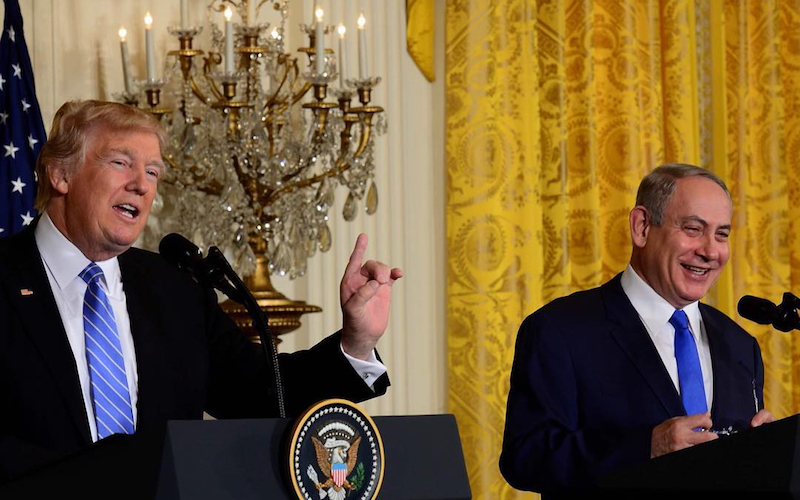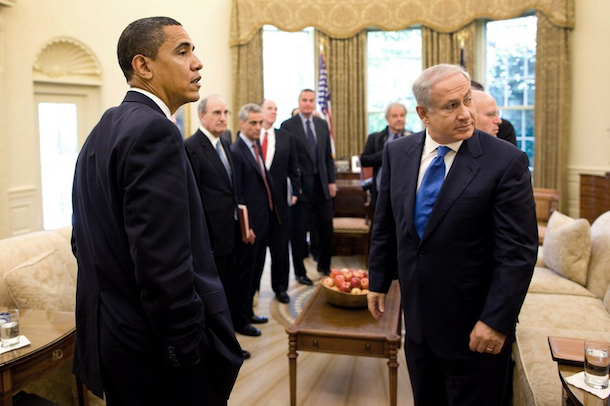
Israel Must Be Wary of Trump’s Unstable Foreign Policy
Last week, the United States launched 59 Tomahawk cruise missiles overnight at Syria in response to a chemical weapon attack by the Assad regime that killed over 100 people, including many children. In the following days, the majority of the Israeli political spectrum came out in support of the attack, from Bibi to Bougie almost all of the major Israeli politicians praised the attack. “In acting as it has, the United States serves as an example to the entire free world, which must support any step required to bring the atrocities in Syria to an end,” stated President Reuven ‘Ruvi’ Rivlin.
In the Unites States, the attack was slightly more controversial but still, widely respected and viewed as a bold and necessary move for the West. The few Americans who criticized it were only able to claim that Trump should have sought Congressional approval before launching the missiles.
If there is one thing that everyone can agree on, it’s that Trump’s recent response to the latest Syrian attack was a pivotal one. One that is in stark contrast to his foreign policy. Throughout his campaign, Donald Trump preached a consistently anti-interventionist approach to America’s foreign relations.
During his election campaign, when introducing his foreign policy for the first time, Trump said, “We will stop racing to topple foreign regimes that we know nothing about, that we shouldn’t be involved with.” Throughout the rest of the campaign and since, Trump’s rhetoric was similar, railing against the war in Iraq and repeatedly vowing to rebuild the U.S. military, which he suggested had been stretched too thin. Instead of investing in wars, he said, he should spend money building up America’s aging roads, bridges, and airports.
Once the rubble clears and the dust settles, one question will remain looming over Israel: How long will it be until Donald Trump once again takes his foreign policy for a 180-degree spin? The fact that this move is one we can support doesn’t negate the fact that Trump’s foreign policy suddenly and drastically changed.

Another prominent element of Trump’s foreign policy has been his strong support of Israel. After the election, many Israeli’s were convinced that Trump is the greatest thing to happen to Israel in years. It seemed that the Trump presidency was going to be Netanyahu’s victory lap. Expecting to be free of the condemnation of construction in the settlements that became routine under President Obama, the Israeli Right assumed President Donald Trump would allow Israel to build freely. He also said may times that he would firmly support Israel in the international arena and that he would block any one-sided anti-Israel resolutions attempted by the United Nations.
But now, Israelis should be worried. The way Trump was able to uproot a cornerstone of his policy calls into question everything he has said, including, his strong support of Israel. Which in of itself was never entirely convincing due to the many discrepancies it included. While many times he came off as strongly pro-Israel, he also made many unsettling statements such as saying he would make Israel pay for defense aid, along with other allies like South Korea, Japan, and Saudi Arabia.
Is it possible that Trump simply decided to make an exception to his policy? Yes. But it’s important to remember that we are talking about the same Donald Trump who twice tried to bar all Syrian refugees fleeing Syria. One of the biggest fears of Trump was that he is unstable, and like it or not he seems to be fulfilling that prophecy.
The ramifications of this sudden, knee-jerk policy change are that Israel must be painfully cautious. Netanyahu cannot simply count on Trump to let him do whatever he wants. Israel’s Relationship with the United States under the Trump administration may not be as stable as we thought it was. Therefore, it’s vital that Israel not take any extra risks. Israel depends on the support of the United States, and it must not jeopardize it for unimportant causes such as building a little less or a little more in the settlements.
The many American-Israelis who voted for Trump must ask themselves: Was an unstable president who right now supports Israel a better option than a stable, predictable president who undoubtedly would have continued supporting Israel the way America had until now?
I’m not ruling out the possibility of Israel prospering during the Trump presidency, but recent events must serve as a warning. Netanyahu must beware, Trump’s foreign policy is not even remotely stable, and it’s now on him to ensure that Israel continues to enjoy a stable relationship with its greatest ally, the United States, a task that may be surprisingly harder than he had hoped.

